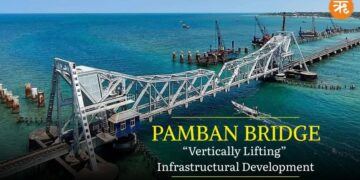On May 30, 1826, the first Hindi newspaper, ‘Udant Martand,’ was launched in Calcutta, marking the beginning of Hindi journalism. This day is now celebrated as Hindi Journalism Day. The newspaper was founded by Pandit Jugal Kishore Shukla, who served as its publisher and editor. ‘Udant Martand’ was a weekly publication, distributed every Tuesday, with an initial print run of 500 copies. The newspaper used a blend of Khadiboli and Braj Bhasha, which the editor termed “Middle Indian Language.” It published articles criticizing the oppressive policies of the East India Company, which led to various challenges. Given its Hindi language, the readership in Calcutta was limited, necessitating postal distribution to other states—a costly endeavor. Shukla sought postal rate concessions from the British government, but his requests were denied. Consequently, after 19 months, the publication of ‘Udant Martand’ ceased on December 19, 1827.
May 30, 1826: The first Hindi language newspaper ‘Udant Martand’ was published from Calcutta
This day is celebrated as Hindi Journalism Day
Pandit Jugal Kishore Shukla started it as a weekly newspaper from Calcutta
On May 30, 1987, Goa became the 25th state of India, celebrated as Goa Foundation Day. Goa was under Portuguese rule for many years until its liberation on December 19, 1961. The Indian Army launched Operation Vijay on December 18, 1961, against Portuguese control over Goa, Daman, and Diu. The operation concluded with the Portuguese Governor, Manuel António Vassalo e Silva, signing a surrender agreement on December 19, 1961, leading to the liberation of these territories. Initially, Goa was designated as a Union Territory. However, on May 30, 1987, it was granted statehood, becoming the 25th state of India, while Daman and Diu remained Union Territories. Despite gaining independence from Portuguese rule, Goa’s culture still reflects its Portuguese heritage.
On May 30, 1987, Goa became the 25th state of India
This day is celebrated as Goa Foundation Day
Goa was ruled by the Portuguese for many years
On May 30, 2019, Narendra Modi was sworn in for his second consecutive term as Prime Minister of India. President Ram Nath Kovind administered the oath of office and secrecy to Modi at Rashtrapati Bhavan. Modi’s popularity remained strong from the 2014 to the 2019 Lok Sabha elections, where the Bharatiya Janata Party (BJP) secured a larger victory than in 2014, winning 303 seats. The National Democratic Alliance (NDA) as a whole won 353 seats.
The 2019 elections, conducted in seven phases, concluded on May 23, with the Indian National Congress obtaining only 52 seats. The Congress-led United Progressive Alliance (UPA) won 91 seats, while other parties secured 98 seats. During his tenure, Modi’s government made several significant decisions, including the abrogation of Article 370, which granted special status to Jammu and Kashmir, and the initiation of the construction of the Ram Temple in Ayodhya.
May 30, 2019: Narendra Modi took oath as Prime Minister for the second consecutive time
In the 2019 Lok Sabha elections, the Bharatiya Janata Party won a bigger victory than the 2014 results
In 2019, the Bharatiya Janata Party won 303 seats
The 5th Sikh Guru, Arjun Dev Ji, martyred on May 30, 1606, laid the foundation of Sri Harmandir Sahib Gurudwara, known as the Golden Temple. He was revered for his devotion, pure heart, and dedication. Despite his spiritual leadership, he faced atrocities under Mughal ruler Jahangir’s reign. Jahangir’s conflict with Khusro Mirza led to Guru Arjun Dev’s imprisonment and torture, ultimately resulting in his death. His successor, Guru Hargobind Singh Ji, carried forward Sikhism’s legacy.
On May 30, 1606, the 5th Guru of Sikhs, Guru Arjun Dev Ji sacrificed his life
It was Arjun Dev ji who laid the foundation of the Golden Temple in Amritsar
Jahangir had given many physical tortures to Guru Arjun Dev Ji
Bangladesh’s former President Ziaur Rahman was assassinated on May 30, 1981, in Chittagong. Just four days before his assassination, he had transferred a general commanding officer, which made him a target. Attackers assaulted the guest house where the president was staying, leading to his death. The attack took only 20 minutes, carried out by soldiers from his own army.
May 30, 1981: The then President of Bangladesh Zia-ur-Rahman was assassinated
Zia was the second president after Sheikh Mujibur Rahman to be assassinated
On May 30, 1998, Afghanistan experienced its deadliest earthquake in Takhar province, registering a magnitude of 6.5. Over 4,000 lives were lost, and more than 10,000 people sustained injuries. The quake’s impact was felt in neighboring Tajikistan, Uzbekistan, and Pakistan, but Afghanistan bore the brunt of the devastation.
May 30, 1998: A terrible earthquake occurred in Afghanistan
The intensity of this earthquake that occurred in Takhar province was 6.5
















Comments